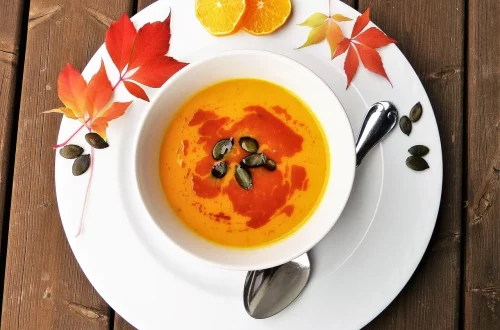
Can Horses Have Strawberries? Discover the Truth About This Treat
Horses are magnificent creatures that have been companions to humans for centuries. Their gentle nature and strong build make them beloved animals in various roles, from workhorses on farms to graceful competitors in equestrian sports. A significant aspect of caring for horses involves understanding their dietary needs and preferences. Just like humans, horses can have a wide range of tastes when it comes to food, and treats can play an essential role in their overall well-being and happiness.
Among the many fruits available, strawberries are often a favorite among equine enthusiasts. Their bright red color and sweet flavor can make them an appealing snack for both humans and horses alike. However, the question arises: can horses safely enjoy strawberries? This inquiry leads us to explore the nutritional value of strawberries, their potential benefits for horses, and how to incorporate them into a horse’s diet responsibly. Understanding these aspects is crucial for horse owners who want to ensure that their equine friends enjoy a healthy and varied diet.
As we delve into this topic, we will uncover the truth about strawberries as a treat for horses, providing insights that can help owners make informed decisions about their horses’ nutrition.
Understanding Horse Nutrition
When it comes to equine health, understanding the basics of horse nutrition is crucial for any owner or caretaker. Horses are herbivores, which means their diet primarily consists of plant matter. Their digestive systems are specially adapted to process fibrous materials like hay and grass. However, just like humans, horses can benefit from a variety of foods, including occasional treats.
The primary component of a horse’s diet should always be forage, such as hay or pasture grass. This forms the foundation of their nutritional intake, providing essential fiber that supports digestive health. In addition to forage, horses may require grains or concentrates, particularly if they have higher energy needs due to work or performance. These can include oats, corn, and specially formulated horse feeds that provide balanced nutrition.
Fruits and vegetables can also be included in a horse’s diet, but they should only be given in moderation. Treats like carrots, apples, and yes, strawberries, can serve as excellent rewards and bonding tools. However, it is essential to introduce any new food gradually to monitor for any adverse reactions.
Understanding the balance of nutrients—carbohydrates, proteins, fats, vitamins, and minerals—is vital for maintaining a horse’s health. Too many treats can lead to obesity or digestive issues, so moderation is key. With this foundational knowledge, horse owners can better assess whether strawberries are a suitable treat for their equine companions.
Are Strawberries Safe for Horses?
The simple answer is yes; strawberries are generally safe for horses to eat. This delightful fruit contains several beneficial nutrients that could contribute positively to a horse’s diet. Strawberries are rich in vitamins such as vitamin C, which plays a role in supporting the immune system. Additionally, they contain antioxidants that can help combat oxidative stress in the body.
However, as with any treat, moderation is essential. Although strawberries are low in calories compared to other snacks, giving too many can lead to digestive upset. Horses have sensitive gastrointestinal systems, and sudden changes in diet or excessive amounts of sugary fruits can lead to colic or diarrhea.
When offering strawberries to horses, it’s advisable to wash them thoroughly to remove any pesticides or chemicals that may be present on the surface. It’s also best to cut the strawberries into smaller pieces, especially for horses that may not be familiar with the fruit. This not only makes it easier for them to chew and digest but also prevents any choking hazards.
Before introducing strawberries or any new food item, horse owners should observe their animals for any signs of allergies or sensitivity. While rare, some horses may react differently to specific fruits. Always start with a small amount to ensure that the horse enjoys the treat without adverse effects.
If a horse enjoys strawberries and shows no negative reactions, they can be included as part of a varied diet, enhancing the horse’s overall eating experience.
Benefits of Feeding Strawberries to Horses
Incorporating strawberries into a horse’s diet can offer several benefits beyond just being a tasty treat. One of the most significant advantages is the nutritional content of strawberries. As mentioned earlier, they are packed with vitamins and antioxidants that help support overall health.
The high water content in strawberries—about 91%—can also aid in hydration, particularly during hot weather or after strenuous activities. Keeping horses well-hydrated is crucial for their performance and health, and offering them fruits like strawberries can be a fun way to encourage fluid intake.
Furthermore, providing a variety of treats can keep horses mentally stimulated. Horses are intelligent animals that thrive on interaction and engagement. Offering different fruits or vegetables as treats can break the monotony of their regular diet and provide a rewarding experience during training sessions or bonding times.
Additionally, using strawberries as a reward during training can reinforce positive behaviors. The sweet taste of strawberries might motivate horses to learn commands or perform tasks more eagerly. It can enhance the bond between horse and owner, making training sessions enjoyable for both parties.
However, it’s important to remember that while strawberries can be beneficial, they should not replace a horse’s main dietary components. They should be treated as an occasional snack rather than a staple food. Always ensure that the majority of a horse’s diet consists of appropriate forage and balanced feed to maintain optimum health.
How to Properly Introduce Strawberries to Your Horse’s Diet
Introducing strawberries into a horse’s diet should be done thoughtfully and gradually. This process ensures that the horse adapts well to the new treat without experiencing digestive issues.
Begin by offering a small piece of strawberry, preferably cut into manageable sizes, allowing the horse to taste it first. Observe their reaction closely. If they show interest and enjoy the flavor, you can gradually increase the amount over time. However, it’s essential to keep quantities moderate, considering that strawberries are still a sugary fruit.
In addition to offering strawberries fresh, horse owners can get creative. Frozen strawberries can be a refreshing treat during the warmer months. Just ensure they are thawed before offering them to prevent any risk of choking on hard, frozen pieces.
Another method of incorporating strawberries can be through homemade treats. Mixing chopped strawberries into homemade horse treats can provide an exciting flavor boost. This way, the horse receives the nutritional benefits while enjoying a variety of textures and tastes.
Always keep in mind the overall balance of your horse’s diet. Treats like strawberries should not exceed more than 10% of the daily intake. Maintaining this balance ensures that your horse remains healthy and happy while enjoying a variety of flavors in their diet.
In conclusion, while strawberries can be a delightful and nutritious treat for horses, they should be offered with caution and in moderation. Always prioritize the horse’s primary dietary needs and consult with a veterinary professional if you have any concerns about introducing new foods.
**Disclaimer:** This article is for informational purposes only and does not constitute medical advice. Always consult a veterinarian for any health-related concerns regarding your horse’s diet or health condition.




